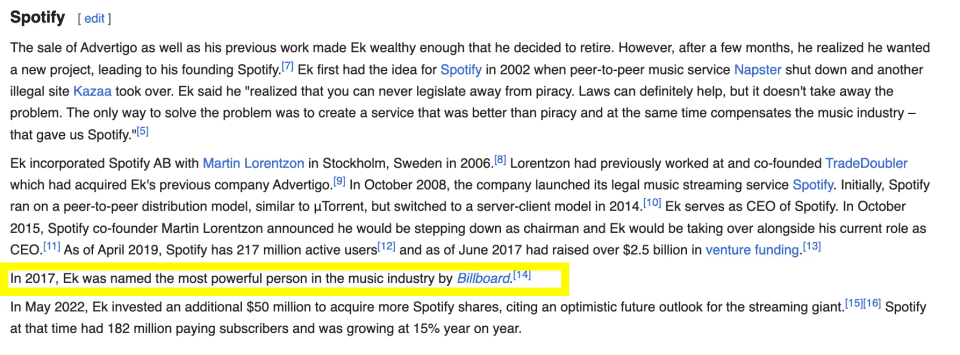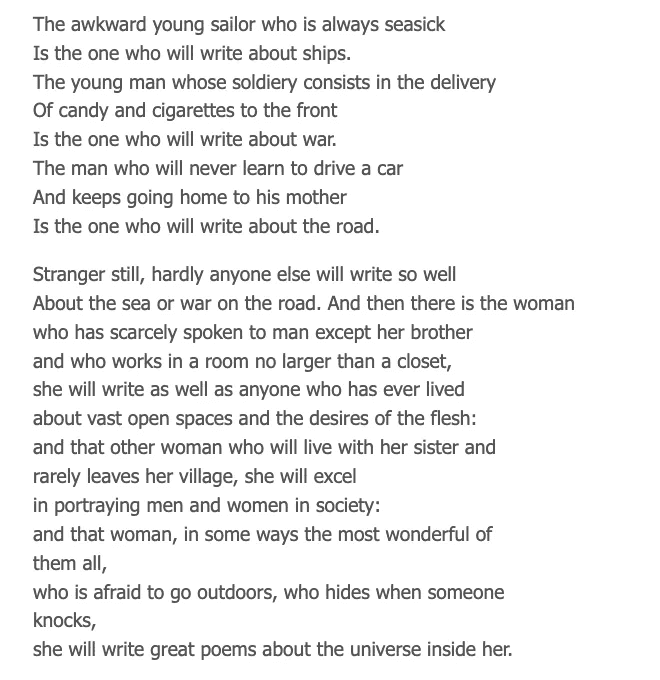Outsiders
I believe that outsiders redefine the norms. And they will continue to do so. The world relies too much on the greatness of sameness in decision making. While it’s good for good and average, it’s not good for great.
Outsiders rarely know the ethos and have no obligations to abide by them, and so end up shaking the status quo.
Outsiders think about things in new ways — do not shy away from thinking about the possibilities of new constructs in old legacy environments, ask important first-principle questions and get excited about things that appear quotidian and impossible to insiders.
So, what contributes to the success of the outsiders repeatedly? Is it the reps and the tinkering that happens when people (insiders) question their credibility repeatedly? Or, is it the chip on their shoulders when they are quasi insiders which fuels their curiosity and motivates them to dig deeper? I think both.
Alden Nowlan’s The Sea Sick Sailor and Others captures this thought beautifully.
The artists he is referring to in these paragraphs are: Herman Melville, Ernest Hemingway, Jack Kerouac, Emily Bronte, Jane Austen, Emily Dickinson.
- Melville did not like his life on the whaling ship; he wrote Moby Dick.
- Hemingway was rejected for military service and spent most of his time on the sidelines. He used war as a backdrop for many of his works and became one of the greatest wartime writers.
- Kerouac was a nomad but found time to write at the home of his mother.
- Bronte was reclusive and shied away from public life but captured the common life’s moments with so much precision that the violence and passion in Wuthering Heights led Victorian public to believe that it had been written by a man.
- Austen was the master of the marriage plot. But she remained single and stayed with her sister until her death.
- Dickinson lived a low key life and was more widely known as a gardener than as a poet. She withdrew from the world but wrote about the universe and the nature.
So, is it the beauty of observing from outside without conditioning that is leading to this exceptionalism? We can only continue to guess.
But to look more deeply into this, it would be worthwhile to read Prof. Gautam Mukunda’s Leader Filtration Theory.
Unfiltered leaders are much more likely to have a high impact.
In simple words, this says, if a company like PepsiCo (or GE) were to choose its CEO tomorrow and it has a choice between ten candidates, five of which are insiders having been groomed over two decades internally in various functions and geographies and five are outsiders who have gained similar experience but in companies in adjacent industries, the outsider has a better chance of being a high impact leader. This is because the folks who have been groomed internally for the last two decades (and have survived the filtration) have a very low probability of running initiatives that go against the grain.
...
I write about this as Daniel Ek (Founder, Spotify) launched his second startup called Neko Health to take on the healthcare industry. It’s purely based on first principles — start with full-body scan and imaging + use AI/ML to diagnose or predict future diseases.
Naive and wild: that’s how I define change makers. Naive enough to think they can change the world and wild enough to actually give it a shot.

